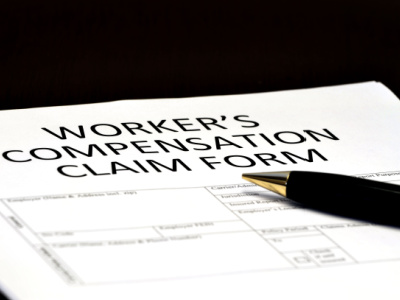Can You Be Disqualified from Receiving Your Worker’s Compensation?
 Worker’s compensation laws are complex, and the authorities continuously scrutinize your claims. Lawyers can help you complete the paperwork, but you must understand the rules for filing a worker’s compensation claim in Illinois. This article explains the basics, in addition to the administrative board’s reasons for disqualifying someone.
Worker’s compensation laws are complex, and the authorities continuously scrutinize your claims. Lawyers can help you complete the paperwork, but you must understand the rules for filing a worker’s compensation claim in Illinois. This article explains the basics, in addition to the administrative board’s reasons for disqualifying someone.
Worker’s Compensation Requirements
The core requirements to qualify for a worker’s compensation are as follows:
-
Working for an insured employer with a valid worker’s compensation coverage.
-
Sustaining an injury at your workplace while performing work-related duties.
-
Notifying your employer about the incident within the designated deadline.
-
Offsite injuries are only accounted for if you visit the third-party location for work purposes.
Your request may only be accepted if you fulfill these terms and conditions. When you file a claim, creating a fact-based report of your workplace accident, injuries, and medical expenses is essential. Your due diligence helps support your statements.
4 Common Reasons for Disqualification
The administrative body can decline your request even if you have a legitimate reason to seek worker’s compensation benefits.
This may happen for the following reasons:
The Failure to Meet Deadlines
You missed the deadline to notify your employer about the work-related injury and its impact on your daily activities. In Illinois, you must inform your employer within 45 days of the incident.
If you file a worker’s compensation claim with the Insurance Department of Illinois, you must do that within a designated period. Requests sent after the statute of limitation expires will lead to an immediate disqualification.
The Employers Proved the Injuries Are Self-Inflicted
Employers can manipulate evidence to create doubt around your claims and prove that you are at fault for injuring yourself. They can do this by showing you were not working when you got injured or deliberately tripped onsite.
You Are Disqualified Because of Reckless Behavior
Employers can present injured employees with alcohol addiction or a history of substance abuse as unreliable claimants. They may try to prove you got hurt because you were intoxicated during your shift.
Moreover, employers can disqualify you from receiving worker’s compensation by saying you started a fight at work if that was the cause of a workplace injury. Anything you said during that period can be used against you.
Incomplete or Non-Compliant Paperwork
Injured employees must share a comprehensive narrative with evidence to support their claims. This means providing a detailed report about when, where, and how the job-related injury occurred. You may also attach medical records, photographs, or recordings as evidence to make a stronger case for yourself.
Aside from this, you need to ensure your paperwork adheres to state regulations. If the review board finds anything missing, they can decline your request.
Contact Waukegan Worker’s Compensation Lawyers
The worker’s compensation regulations are intricate and must be reviewed carefully to ensure your requests align with the requirements. You can consult a lawyer to draft the paperwork and file a complaint if needed. Contact Waukegan worker’s compensation attorneys from Salvi & Maher, LLC today to schedule a consultation.
Sources:
-
https://www.ilga.gov/legislation/ilcs/ilcs3.asp?ActID=2430&ChapterID=68
-
https://www.forbes.com/advisor/business-insurance/illinois-workers-compensation-insurance/
Contact a Lake County Vehicle Accident Attorney Who is Ready to Help You
If you or a member of your family has been injured in a motor vehicle accident, contact our office. Call 847-662-3303 to set up a free initial consultation at one of our four convenient locations. There is no risk because we only collect fees if you collect compensation. With offices in Libertyville, Waukegan, Richmond, and Chicago, we represent clients in Lake County, Cook County, DuPage County, and McHenry County.












